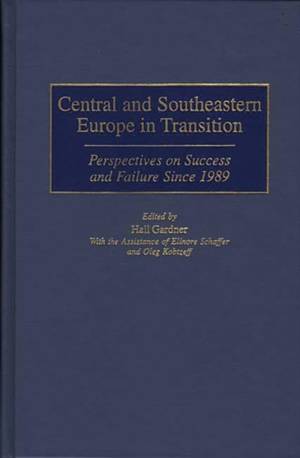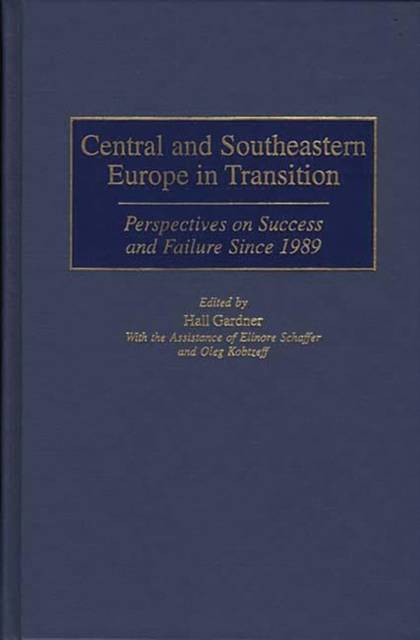
- Afhalen na 1 uur in een winkel met voorraad
- Gratis thuislevering in België vanaf € 30
- Ruim aanbod met 7 miljoen producten
- Afhalen na 1 uur in een winkel met voorraad
- Gratis thuislevering in België vanaf € 30
- Ruim aanbod met 7 miljoen producten
Zoeken
Central and Southeastern Europe in Transition
Perspectives on Success and Failure Since 1989
Hall Gardner
Hardcover | Engels
€ 161,45
+ 322 punten
Omschrijving
It is increasingly important to understand the complexity of central and southeastern Europe following the enlargement of NATO into Central Europe, the ongoing problems of the Balkans, and the subsequent focus of global attention on the entire region. Gardner brings together exceptional French and Eastern European scholars who present first-hand accounts of their experience and knowledge of the region. Each provides differing political, social, cultural, and economic perspectives on Central and Southeastern Europe.
The volume begins with a general discussion of the place of central and southeastern Europe in the greater scheme of European history. This is followed by an examination of the western European and Russian attitudes toward the Balkans, and the largely ignored affects of the Ottoman empire on the Balkans. The importance of culture and the crucial role it played in undermining both the theory and practice of communism is explored. The impact of the media is then examined in two chapters that look at the process of media liberalization in the context of each country's political situation and the particular problems the media faces in the region. The focus shifts to the role of finance capital and its impact in emerging privatized economies. How the global drug wars affect the Balkan region are also explored. The ecological damage to Central and eastern Europe and Russia caused by the communist system is detailed, and the volume ends with a look at the complexity of factors that led NATO to enlarge into Central Europe and intervene in Bosnia and Kosovo. This wide-ranging collection will be of particular interest to scholars and researchers involved with all facets of contemporary central and eastern European life.Specificaties
Betrokkenen
- Auteur(s):
- Uitgeverij:
Inhoud
- Aantal bladzijden:
- 224
- Taal:
- Engels
Eigenschappen
- Productcode (EAN):
- 9780275964603
- Verschijningsdatum:
- 30/06/2000
- Uitvoering:
- Hardcover
- Formaat:
- Genaaid
- Afmetingen:
- 162 mm x 242 mm
- Gewicht:
- 489 g

Alleen bij Standaard Boekhandel
+ 322 punten op je klantenkaart van Standaard Boekhandel
Beoordelingen
We publiceren alleen reviews die voldoen aan de voorwaarden voor reviews. Bekijk onze voorwaarden voor reviews.











